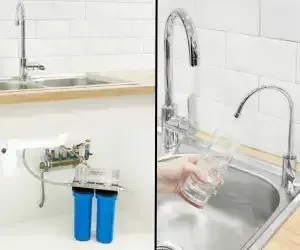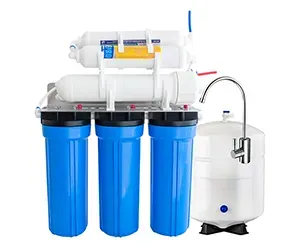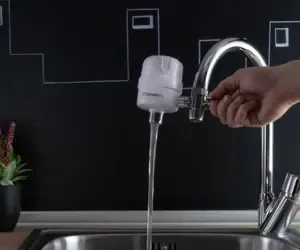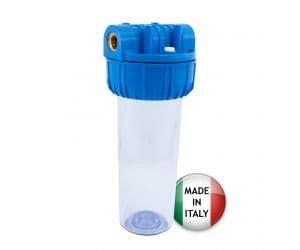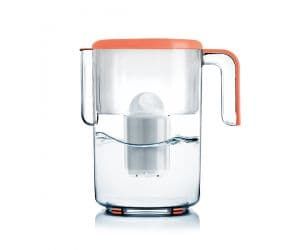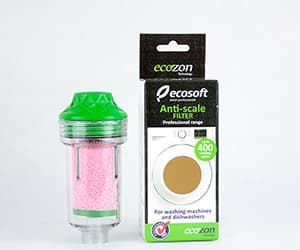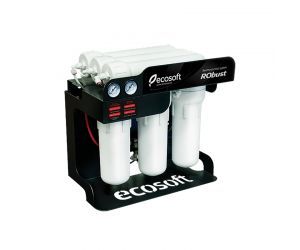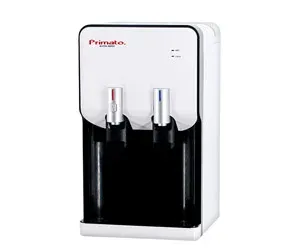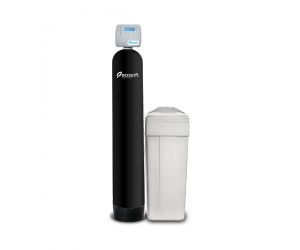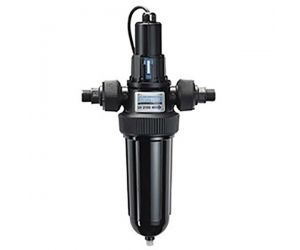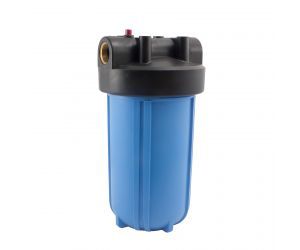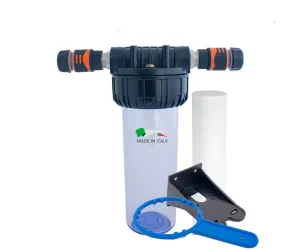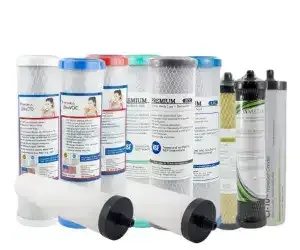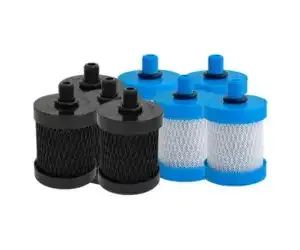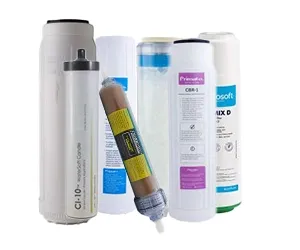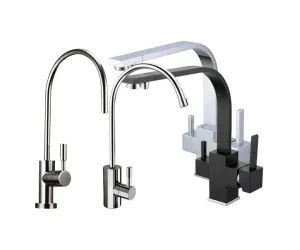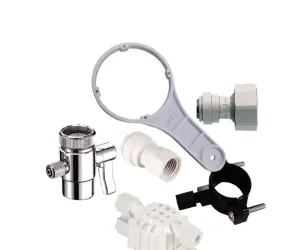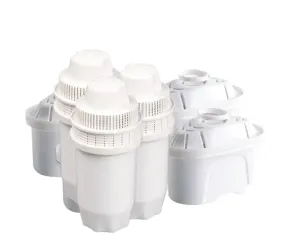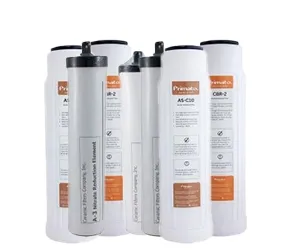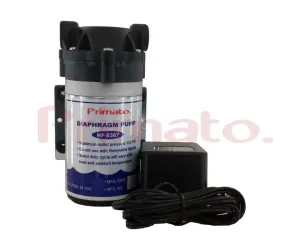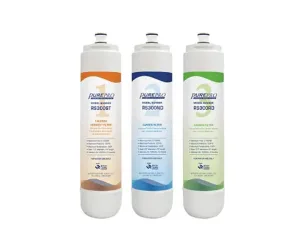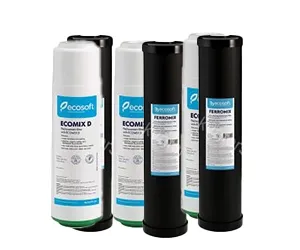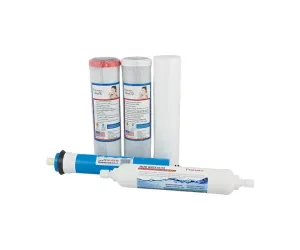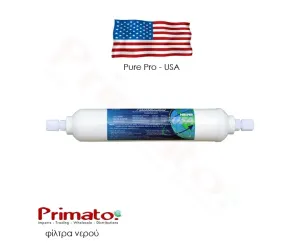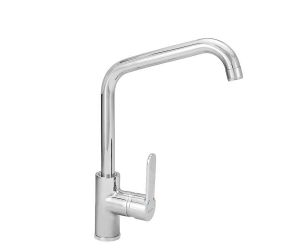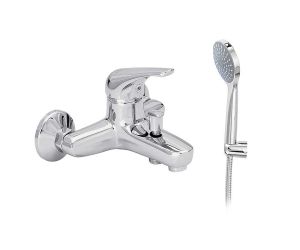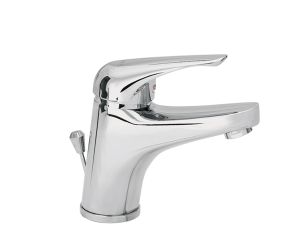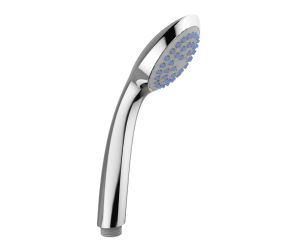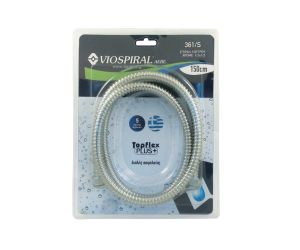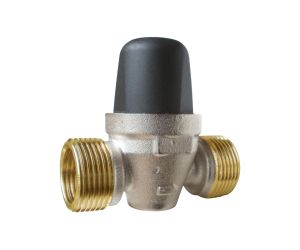Zeolites in water treatment
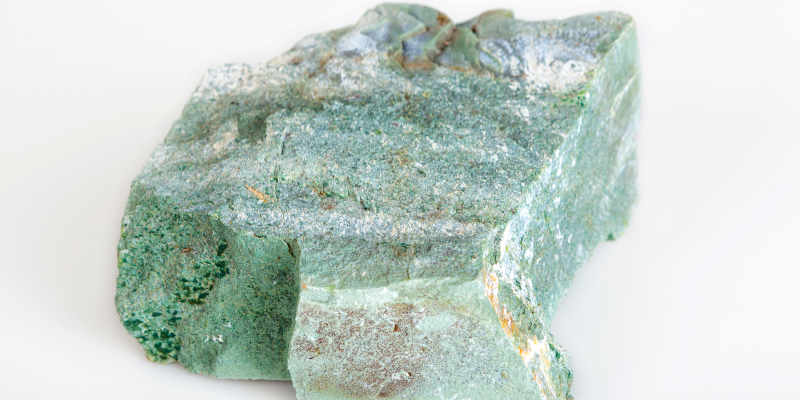
Water filters with zeolites are an innovative technology that uses natural minerals to remove impurities and improve the quality of drinking water. Zeolites are microporous materials that are formed from volcanic ash and other natural minerals. They have a unique crystalline structure that allows them to trap and exchange ions, making them an effective filtration medium for water treatment.
The use of zeolites in water filtration has been studied extensively in recent years, and research has shown that they are effective in removing a wide range of impurities from water. In this article, we will explore the benefits and limitations of water filters with zeolites, and the research that supports their use.
Benefits of Water Filters with Zeolites
One of the main benefits of water filters with zeolites is that they are a natural and eco-friendly solution to water treatment. Unlike other types of water filtration systems that require electricity or chemicals, zeolite filters rely solely on the natural properties of the mineral to purify water. This makes them an ideal option for people who want to reduce their carbon footprint and minimize their use of harsh chemicals.
Zeolite water filters are also effective in removing heavy metals from water, such as lead and mercury. These metals can have long-term health effects if ingested over time, and removing them from drinking water is an important step in maintaining good health. A study published in the Journal of Hazardous Materials found that zeolite filters were effective in removing lead and copper from contaminated water sources (Li et al., 2010).
In addition to removing heavy metals, zeolite filters are also effective in removing other impurities from water, such as bacteria and viruses. A study published in the Journal of Environmental Science and Health found that zeolite filters were effective in removing bacteria and viruses from water sources (Fukushima et al., 2005).
Zeolite filters are also relatively inexpensive compared to other types of water filtration systems, making them an affordable option for many households. They also have a long lifespan and require very little maintenance, which is another cost-saving benefit.
Limitations of Water Filters with Zeolites
While zeolite water filters offer many benefits, they may not be effective in removing all types of impurities from water. For example, they may not be able to remove dissolved solids or certain types of chemicals. It is important to consider the specific needs of your household and the quality of your water source when choosing a water filtration system.
Research Supporting the Use of Zeolite Water Filters
Several studies have been conducted to evaluate the effectiveness of zeolite water filters in removing impurities from water sources. A study published in the Journal of Environmental Science and Health found that zeolite filters were effective in removing arsenic from contaminated water sources (Shirvani et al., 2015). Another study published in the Journal of Hazardous Materials found that zeolite filters were effective in removing iron and manganese from contaminated water sources (Huang et al., 2013).
A study published in the Journal of Water and Health evaluated the effectiveness of zeolite filters in removing bacteria and viruses from water sources. The study found that zeolite filters were effective in removing E. coli, coliforms, and enterococci from contaminated water sources (López-Gálvez et al., 2016).
Conclusion
Water filters with zeolites offer a natural, eco-friendly, and effective solution for water treatment. They offer many benefits, including the removal of impurities, improved taste and odor, and low maintenance costs. However, it is important to consider the specific needs of your household and the quality of your water source when choosing a water filtration system. With proper care and maintenance, a zeolite water filter can provide you with clean, safe drinking water for years to come.
In addition to the benefits of zeolite water filters, there are also ongoing developments and advancements in the technology. For example, some companies are now using modified zeolites that are specifically designed to remove specific contaminants from water, such as pharmaceuticals and pesticides.
Furthermore, researchers are exploring the potential of using zeolites in combination with other filtration methods to create hybrid filtration systems that are even more effective at removing impurities from water. For example, a study published in the Journal of Water Process Engineering found that combining zeolite filtration with activated carbon filtration resulted in a more effective removal of organic contaminants from water (Feng et al., 2018).
Overall, the research supporting the use of zeolite water filters is promising, and they offer a natural and effective solution for water treatment. However, it is important to consider the specific needs of your household and the quality of your water source when choosing a water filtration system. When purchasing a zeolite water filter, it is also important to choose a reputable and reliable brand that has been certified by independent testing organizations to ensure that they meet industry standards for water filtration.
In conclusion, water filters with zeolites are a natural and effective solution for water treatment, with research supporting their ability to remove impurities such as heavy metals, bacteria, and viruses. As the technology continues to evolve and advancements are made, it is likely that zeolite water filters will become an even more popular and widely-used method of water treatment in the future.
Recent posts
- Larissa Water Filters Store
- Well Water in Greece: What’s Really in It and How to Make It Safe
- NanoMetix 10" 0.01μm Water Filter | Advanced Nanofiltration Against PFAS & Microplastics
- The Future of Water: How Primato Filters are Pioneering New Standards in Water Safety
- Primato's Journey at Aquatech Amsterdam: Building Bridges and Expanding Horizons
- The Journey of Water: From Source to Tap - Understanding the Filtration Process
- What are three way water filter taps?
- Shower water filters
- Commercial water filters for hotels, restaurants and cafes
- The reason why more and more people prefer undercounter water filters
- Zeolites in water treatment
- The water supply network of Athens
- The whole truth about water filters
- Russian water filters with aragonite - Purchase guide
- Choosing and buying a countertop water filter
- I live in Athens. Do I need a water filter?
- Water Filter Prices: Full Guide
- Does filtered water help with allergies?
- 10+ reasons to add more water to your lifestyle!
- Zeolite: A natural mineral in the service of water filtration
- Thessaloniki Water: From the source to the glass
- Meet the Greek Water Filters Manufactured in Thessaloniki
- Water Filters with Zeolites
- Turning a coconut into activated carbon
- Thessaloniki: Which Are The Best Water Filters?
- Tap water in Greece: Is it safe? The problems and the solutions
- How to Choose the Right Replacement Filter
- Ultra filtration and Hollow Fiber Membranes explained
- How hard is water in Thessaloniki?
- Whole house water filter cartridges - How to choose the right one!
- Countertop water filters - What to look for before I buy
- Do I need a water filter if I live in Athens?
- Everything you need to know about tap water filters
- Under-sink water filters - Everything you need to know
- Reverse Osmosis - What is it and how it works
- World Water Day - 22 March
- Primato goes sailing!
- What is the activated carbon found in our water filters?
- What are water filters?
- Reverse Osmosis - Perfect for islands, drilling water and aquariums

George Margiolos
George Margiolos was born in Thessaloniki and has graduated from the Department of Marketing of the Alexandreio Technological Educational Institute of Thessaloniki. He is fluent in English and (not so fluent) in German.
Ηe has been Project Manager at Avery Dennison - Fastener Division in the UK. There, his main project was to redesign the company's products into new applications so as to become more environmentally friendly. In combination with the fact that in the UK people are more familiar with water filters, he has developed a love for environmentally friendly water filters, which reduce the use of plastic bottles and improving people's quality of life.
Since 2008, he has published over 300 unique educational and informative articles on water filters and new water treatment technologies.
Occasionally, universities and doctoral students request to use George Margiolos' articles in their research because of their quality and uniqueness.

